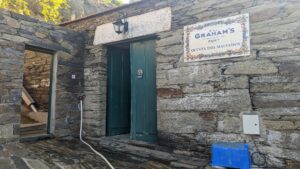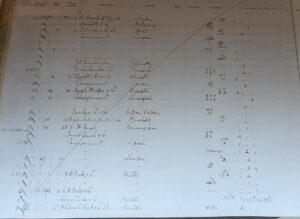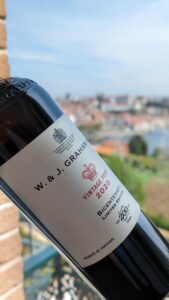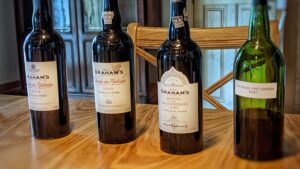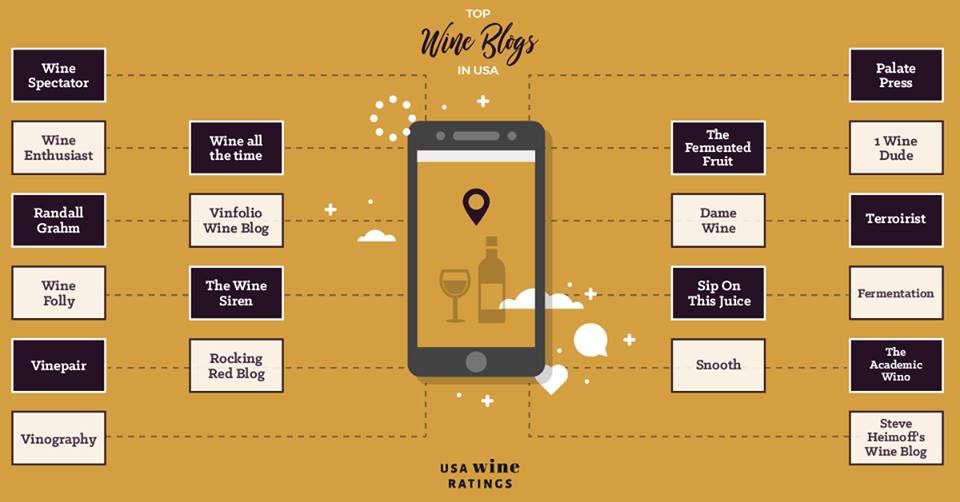“Time for dinner,” is heard in the distance as a boy runs around with his dogs along steep rocky paths. The several layers of dirt that cover every inch of him indicate that it was a great day. “Time for dinner!” his mother yells a second time and the boy knows he shouldn’t press his luck so he dutifully runs back home. He sees his charming house coming up the road as he hurries down the path; it is a lovely place made of off-white stucco with ceramic roof tiles and an enchanting wrought iron balcony on the second floor where his mother stands to call for him. The boy dashes into the house before his mother can reach him and his grandparents at the dinner table immediately call for him to join them as he tracks dirt all over the house. His mother quickly enters the dining room and gives her son a quick wipe with a big, soft towel and, finally, everyone settles down for dinner as delicious smells emanate from the kitchen.
As night starts to descend around the home, the bright glowing lights from outside fade and the stories would begin. The boy’s grandfather and father talk about the family business, the current harvest, the concerns about costs and the plans for the future. The boy was transfixed on their discussions, never fully understanding what they were talking about but he knew he wanted to be part of the conversation one day. He would ask his grandfather to tell the stories he loved to hear about the past; no electricity, dangerous conditions along the river and the fight to preserve the way of life in their remote and desolate region. The grandfather was like a superhero to this young boy and the boy would wonder, one day, if he could become a heroic giant like his grandpa.
Once dinner was finished, the boy’s grandfather and father would go out onto the veranda, which during the day has a stunning view of the river and the ancient stone terraced vineyards on the side of surrounding mountains. It is an entirely different kind of beauty at night – the beauty of darkness and silence. Both his father and grandfather would quietly sit there, their bodies sinking in their chairs as they drank their Port1 wine and a sense of serenity would wash over the boy making him wish he could freeze time at that moment, as no other feeling felt as good.
Graham’s Quinta dos Malvedos
All grandfathers seem like heroes to their grandchildren but, in this case, this grandfather, James Symington, played a pivotal role in his family’s legacy safeguarding Port production and the preservation of its ancient vineyards in the Douro Valley in Portugal. The home where James, his son Rupert and his grandson Hugh spent so much of their family time was on their Graham’s Quinta dos Malvedos property.
The Graham’s Port house is where it all began for the Symington family, the largest owners of vineyards in the historic, designated Douro Valley wine region. In 1882, Andrew James Symington, James’ grandfather, left the comfort of Scotland to take an adventurous ocean voyage to Porto in Northern Portugal, a port city where much of the Port production was brought to export to other countries. He worked for a Scottish family, with the surname Graham (the founding family of Graham’s over 60 years earlier) and then eventually Andrew started his own Port business. From the beginning, the Graham family’s goal was to make exceptional Port wine and that was the foundation on which Andrew James Symington built his Symington Family Estates. A couple of generations later, Andrew’s grandson, James, with his siblings, purchased Graham’s from the founding family and with it, the estate of Quinta dos Malvedos which is at the heart of Graham’s Vintage Ports.
The outstanding quality of the Quinta dos Malvedos grapes make up the central core of Graham’s Vintage Ports when a vintage is declared and in years when a vintage is not declared, it makes a fantastic Single Quinta Vintage Port (SQVP), a single estate (a.k.a. quinta) from a single vintage. The SQVP category is one of the most exciting for Port wine collectors. Even more thrilling and rare is the bottling of Quinta dos Malvedos ‘The Stone Terraces,’ made only from two parcels of 18th-century schist stone-terraced vineyards on the Quinta dos Malvedos property, which has proven over time to produce a very distinctive sense of place.
Graham’s Six Grapes
James Symington not only purchased Graham’s, where his grandfather started the legacy of the Symington Port family but he took another important property that used to source for Graham’s called Quinta da Vila Velha and he restored it to its former glory. James purchased the riverside property of Quinta da Vila Velha with his son Rupert back in the late 1980s and it became just as important of a place as Quinta dos Malvedos – where they would have their family dinners. And in honor of his father, Rupert is releasing a very special limited bottling of Graham’s ‘Six Grapes’ called Special Vila Velha Edition, sourced exclusively from a strict selection of Quinta da Vila Velha grapes.
The ‘Six Grapes’ label is an historic and iconic one rooted in the six grapes symbol used in the 1800s as a code for Graham’s winemakers to identify the barrels with the best wines, which were often bottled as Vintage Port. Starting in the early 1900s, Graham’s decided to bottle a Reserve Port selected from these barrels, and hence, why their ‘Six Grapes’ Reserve Port has always held a highly esteemed place within Graham’s portfolio, having higher status than even their LBV (Late Bottled Vintage) Port.
Although ‘Six Grapes’ Reserve Port does not have the rarity or exclusive appeal that the SQVP or ‘The Stone Terraces’ may have, it does consistently have a beautiful expression of fruit with an overall vibrant and youthful quality that over-delivers for the modest price and it is widely available on the marketplace as it is an extremely popular brand. It is the ideal wine to introduce Port to a novice as it gives a good impression of the incredible aromatics, flavors and complexity that the Douro Valley can express, especially when it comes from top-selected barrels from Graham’s estates, yet there is tons of bright, juicy fruit making it irresistibly delicious. And so, it is perfect for new Port drinkers as well as more seasoned, ones who prefer to have a bottle of ‘Six Grapes’ as an everyday wine, which is easy, especially considering the bottle will last up to six weeks after being opened.
Because of the popularity of ‘Six Grapes,’ there has been a demand for special edition bottlings and so other special editions include Six Grapes: Special River Quintas Edition, which is made from two of Graham’s top estates and Six Grapes: Special Old Vines Edition which is sourced from old vines over 40 years old.
The Spirit of the Douro Valley
After a long stretch of grueling working hours that can go on for several months, there is nothing more precious to Rupert Symington than spending time in that serene silence on the veranda at his Quinta dos Malvedos family home. But nowadays, instead of him connecting in that silence with his father, James, he spends it with that little boy, now a man, his son Hugh, who has taken some of the heavy burden of helping with sales in the U.S. As they share a glass of Port, the Six Grapes Special Vila Velha Edition, they bask in the memories of Rupert’s father, Hugh’s grandfather, who passed away two years ago. As the moonlight shines slivers of light cutting through the dark cover of night, it hints at the glimpses of ancient terraces carved within steep slopes, enhanced by the sound of the flowing river. “This is what the Douro is all about,” Rupert says softly, as he and Hugh go back to silently drinking their Port honoring a heroic giant of the Douro Valley.
***Link to original article on Forbes: https://www.forbes.com/sites/cathrinetodd/2022/12/02/special-limited-edition-portuguese-wine-honoring-a-leading-figure-in-the-douro-valley/
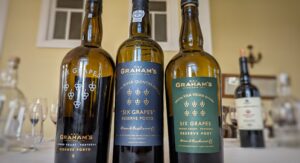
A quick note about Port wine: it can be a misnomer to think of it as a sweet wine that should only be paired with dessert. Because Port has many layers of complexity, the higher the quality status, the more layers and so the sweetness takes a backseat to the multifaceted aromas, flavors and structure. Its residual sugars are natural sugars from the grapes so the sugar is also part of the expression of grape varieties, place and hundreds of years of tradition. It is very easy to forget that it is a sweet wine when tasted, as due to all the complex layers, it is great to pair with hearty meals and fantastic with spicy foods such as curry. But since the natural fruit sugars balance all the other layers, it is an entirely balanced wine that can be consumed on its own.
NV Graham’s Six Grapes Reserve Ruby Port: When one thinks about how many people love to drink wines with a sweet quality that are just marketing gimmicks, Six Grapes, which has beautiful sweet red fruit yet also violets, smoldering earth and dry herbs wrapped in great energy and overall freshness, becomes a more authentic choice than many of these other wines that hits one over the head with one-dimensional sweetness. Retailing around $25 and lasting around six weeks after opening, it is one of the best ways to satisfy that sweet fruit craving.
NV Graham’s Six Grapes Reserve Ruby Port, Special River Quintas Edition: The regular Six Grapes Reserve is already impressive, and always has been, but this Special River Quintas Edition takes it up several notches. Wow! The quality of the tannins is exquisite as they set up a firm framework on the entry to bring precision and focus to the generous fruit yet once it hits the mid-palate and the finish, the tannins melt into silky ribbons. Plush mid-palate with flavors of plum pie balanced by zesty orange peel, and again, those tannins – impressive! Only retailing between $40-$45 as it delivers at a much higher price point.
NV Graham’s Six Grapes Reserve Ruby Port, Special Vila Velha Edition: The beautiful homage to James Symington by his son Rupert that features James’ beloved Vila Velha estate. Candied violets and rose petals with smoked black tea and crushed rocks with intense blackberry and cassis flavors with fine tannins; only 12,000 bottles produced.
2020 Graham’s Vintage Port: This Vintage Port celebrates the bicentennial anniversary of Graham’s. Lots of brambly berries with hints of tarragon and citrus blossoms that has a sculpted texture balanced by plenty of fleshy fruit on the palate that has a lifted and extended expressive finish.
Vertical of Quinta dos Malvedos:
1987 Graham’s Quinta dos Malvedos Vintage Port: Lit cigar with dried red currants with bay leaf and high acidity that has an expressive finish with notes of star anise and fennel fronds.
1999 Graham’s Quinta dos Malvedos Vintage Port: Lifted, bright aromas of eucalyptus and pine that is nimble as it dances on the palate with juicy cassis and vibrant red cherry flavors with fresh tobacco leaves in the background.
2004 Graham’s Quinta dos Malvedos Vintage Port: This wine immediately jumped out of the glass with an aromatic nose of dark fruit, cocoa dust and broken slate and if one thinks it can’t get any better than the nose, then wait, the palate is incredible with supple fruit texture, richly decadent body and an extremely long and flavorful finish.
2010 Graham’s Quinta dos Malvedos Vintage Port: This wine is extremely harmonious already at this relatively young age for a Vintage Port. Fresh mint on the nose with layers of stony minerality and kirsch on the juicy palate intermixed with bitter dark chocolate and spices with a lovely freshness on the finish.
1Port is a fortified wine with a neutral spirit added during fermentation, leaving some of the natural sugars from the grapes in the final product.


